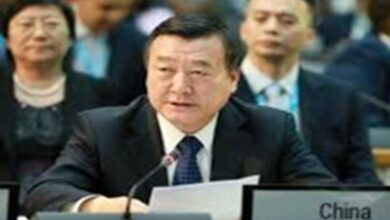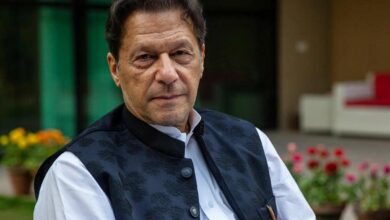Foreign ministers of G7 countries and the High Representative of the European Union expressed concern over the human rights situation in China
G7 foreign ministers and the high representative of the European Union voiced alarm over the state of human rights in China, especially in areas like Tibet and Xinjiang, and the ongoing degradation of civil freedoms in Hong Kong.

After the conference in Italy, the EU’s High Representative sent a message to the G7 Foreign Ministers. The leaders described the sentence of forty-five pro-democracy politicians and activists as a further erosion of pluralism and democratic engagement.
“We continue to be concerned about the human rights situation in China, including in Xinjiang and Tibet,” the G7 foreign ministers—Canada, France, Germany, Italy, Japan, the United Kingdom, and the United States—as well as the EU High Representative—stated in a statement. The decline of Hong Kong’s civil society, human rights, and basic freedoms continues to worry us.
The sentencing of 45 pro-democracy politicians and activists represents a further decline in pluralism and democratic participation, undermining trust in the rule of law as guaranteed by the Hong Kong Basic Law and, consequently, the international legal obligations of both Hong Kong and the People’s Republic of China. We urge China and the Hong Kong government to uphold its legal and international human rights duties,” the statement said.
The imprisonment of forty-five opposition members in Hong Kong who were found guilty of “conspiring to subvert state power” under the city’s National Security Law has been bemoaned by foreign organizations. It is seen as a clear threat to China’s international legal commitments under several accords as well as Hong Kong’s legal autonomy.
The independence and human rights of Tibet, Xinjiang, and Hong Kong are at danger due to China’s excessive use of the National Security Law.
With approximately 300 people detained for violating the National Security legislation or sedition charges from the colonial period, Hong Kong’s human rights situation has become worse since the legislation was passed. The city’s opposition voices have been more silenced and persecution has increased after the recent implementation of the Article 23 law.
The G7 countries’ foreign ministers also voiced their worries about the state of affairs in the East and South China Seas and reaffirmed their opposition to any unilateral efforts to alter the status quo by coercion or force in the statement.
“We remain seriously concerned about the situation in the East and South China Seas,” the G7 ministers stated, expressing alarm about China’s actions in those areas. We reaffirm our strong opposition to any unilateral efforts to use coercion or force to alter the status quo. China’s broad maritime claims in the South China Sea are unfounded legally.
China’s militarization, coercive actions, and intimidation tactics in the South China Sea have been criticized by the G7 countries. The G7 countries’ foreign ministers voiced their objections to China’s persistent interference with other countries’ freedom of navigation and overflight, as well as its risky use of coast guard and maritime militia in the South China Sea.
“We reiterate our opposition to China’s militarization and coercive and intimidatory activities in the South China Sea,” the G7 foreign ministers and the EU’s high representative said in the statement. We reiterate the importance of the United Nations Convention on the Law of the Sea in establishing the legal framework that regulates all activities in the oceans and seas, as well as its universal and cohesive nature.
“We remain opposed to China’s persistent interference with nations’ freedom of navigation and overflight, as well as its risky deployment of coast guard and maritime militia in the South China Sea. We are really concerned about the growing use of water cannons and risky tactics against Vietnamese and Philippine boats. We restate that the landmark decision made by the Arbitral Tribunal on July 12, 2016, is legally binding on the parties involved in those proceedings and serves as a helpful foundation for amicably settling disagreements between the parties,” they said.





